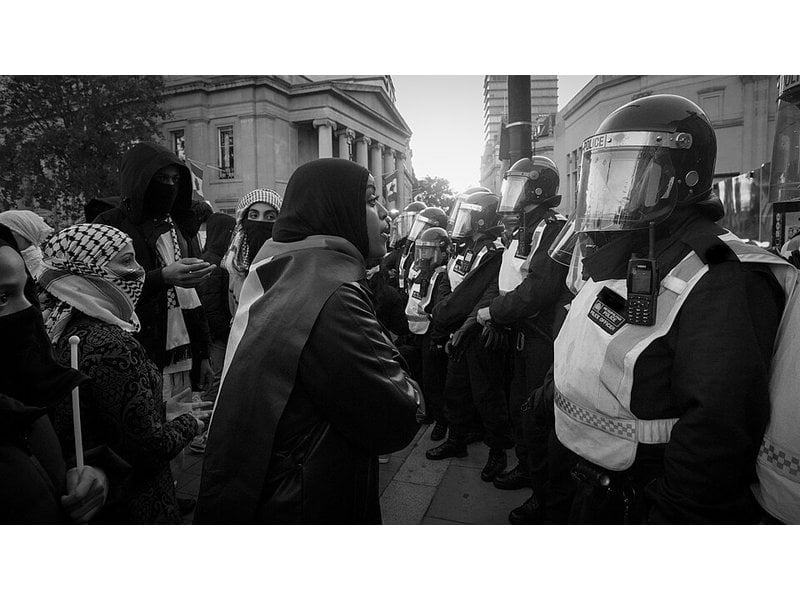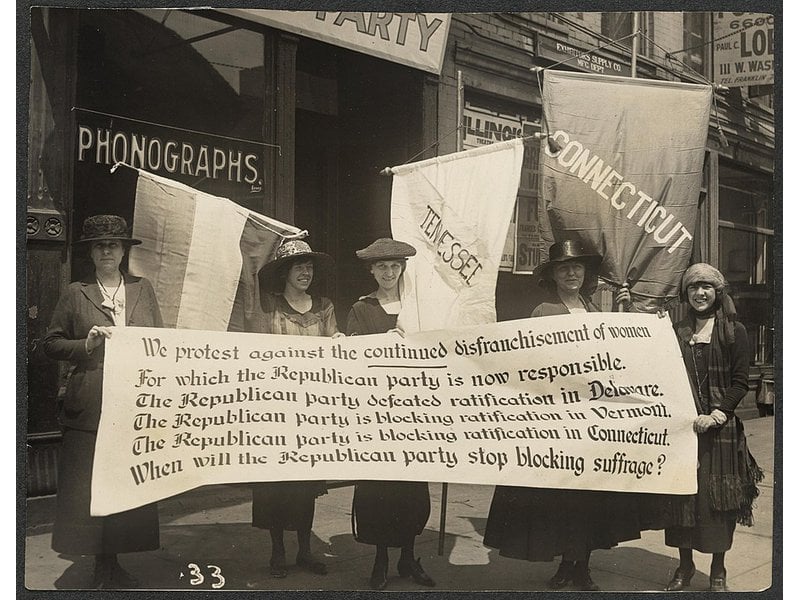128 boycott of government supported institutions

"This type of political noncooperation expresses itself in a refusal to join, or decision to resign from, organizations which are regarded as instruments of the government or political movement which is being opposed. One example is the refusal of the Norwegian teachers in 1942 to join the Quisling government’s new teachers’ organization, which was to be used as the cornerstone of the Corporative State and as a wedge for indoctrinating the children.69"...
High scoring campaigns using this method
Historical cases from the Nonviolent Action Database that used this method
African American residents of Chester, PA, demonstrate to end de facto segregation in public schools, 1963-1966
In November 1963, African American parents in the small city of Chester, PA organized and demanded better conditions at their local elementary school, Franklin School. They picketed the school and blocked its doors, successfully shutting it down for ...
African Americans boycott buses for integration in Montgomery, Alabama, U.S., 1955-1956
The yearlong boycott of Montgomery, Alabama’s city buses by between 40,000 and 50,000 African American residents was in the works for years before it began in December 1955. At that time in Montgomery, as well as in many cities across the southern Un...
Alexandra Commuters Boycott Johannesburg Buses - 1943
Black South Africans suffering under restrictive racially-based laws relied heavily on public transportation to commute to their jobs in the urban center of Johannesburg. One community, Alexandra Township of Johannesburg, experienced a fare hike from...
Spanish coal miners challenge Franco dictatorship, 1962
The strikes in April and May of 1962 in Asturias (the coal mining center of Spain) were executed by the miners of Asturias and were a direct challenge to General Francisco Franco’s regime. Although the mines were privately owned and operated, the sta...
Congolese Trade Unions' Confederation strikes for trade union independence, 1990
From September to October 1990, the Congolese Trade Unions’ Confederation (CSC) conducted several strikes aimed at ending privatization, increasing wages, achieving legal trade union independence, and stopping lay-offs. The CSC almost exclusively use...
Norwegian teachers prevent Nazi takeover of education, 1942
Norway was invaded by the Nazis on April 9, 1940. Within two months, the Nazis had crushed Norwegian military resistance and installed a puppet government. Norwegians responded to the occupation of their country both nonviolently and violently. Becau...
Greenpeace and others pressure international buyers, protect Great Bear Rainforest, Canada, 1994-2001
The North and Central Coast, or Great Bear Rainforest as it would later be known, is an area of 6.4 million hectares that extends from the BC-Yukon border all the way down the BC coastline and ending before Bute Inlet. It is the largest temperate rai...
West Indians of Bristol boycott buses, end racial discrimination in hiring, UK, 1963
Many West Indian settled in England during the 1960’s due to looser immigration restrictions. In Southwest England West Indians easily found menial jobs in Bristol, but found themselves shut out of higher positions. It was hardly a secret that the Br...
Ecuadorians oust President Gutiérrez (Rebellion of the Forajidos), 2005
Retired Colonel Lucio Gutiérrez won the 2002 presidential elections in Ecuador after emerging as a popular ally of the poor during the years following a 2000 coup d’etat. A series of decisions followed his becoming president that increased the countr...
Sarasotan Students' school boycott stops neighborhood schools from closing, Florida, United States, 1969
Before Booker Grammar School, Sarasota’s first Black public school, was established in 1925, Black students received their education at home or in churches. The establishment of three other schools for Black students -- Amaryllis Park for first throu...
Low scoring campaigns using this method
Historical cases from the Nonviolent Action Database that used this method
Paul Robeson High School Students in New York Campaign Against Closing, 2009-2011
Paul Robeson High School opened in Brooklyn, New York, 1984, as a replacement for the closed Alexander Hamilton High School. The school board’s vision for the new Robeson High School focused primarily on decreasing the dropout rate. To ensure this, t...
Black South Africans boycott Bantu education system, 1954-1955
In 1953 the South African Government passed the Bantu Education Act into law. This act gave the South African government the power to structure the education of Native South African children, separate from White South African children. This law was i...
Spanish workers strike in Asturian mines, 1963
The Asturian strikes that occurred in the summer of 1963 were the second major challenge to the Franco dictatorship over the span of one year. The first challenge had occurred in the spring of 1962 (see “Spanish coal miners challenge Franco dictators...





